Life
Born in Adjud, his parents were the physician Theodor Botta and his wife Aglaia (née de Franceschi), an orphanage director; his brother was poet and actor Emil Botta. [1] His father was descended from an old Transylvanian family, the noble status of which was confirmed by Christopher Báthory in 1579, and related to Bishop Ioan Bob. Theodor Botta, caught in the national struggle of Transylvania's Romanians during the rule of Austria-Hungary, took refuge in the Moldavia region of the Romanian Old Kingdom after completing his medical studies at Vienna. A doctor for the Căile Ferate Române state railway, he took part in World War I and died in 1921. Aglaia was the daughter of Francesco Maria de Franceschi, a Corsican who settled in Moldavia in 1872 and worked as a technician at the Sascut sugar factory. [2]
Botta attended primary school in his native town, followed by high school in Focșani (Unirea High School until 1921) and Bucharest (Saint Sava National College, 1921–1923). He attended the University of Bucharest from 1923 to 1927, studying Latin and Greek literature and law. In 1927, he also completed studies at the physical education institute, perhaps reflecting a nostalgia for paideia . While a student, he contributed to Calendarul and L'Indépendance Roumaine magazines, publishing articles about literature, art and music. He later wrote for Rampa, Gândirea , Vremea and La Nation Roumaine; in 1941, together with Emil Giurgiuca and Octavian Codru Tăslăuanu, he founded Dacia magazine. He took part in the Criterion group's symposiums, joining the editing committee in 1943. From 1938, he formed part of the leadership at Dimitrie Gusti's project Enciclopedia României . [2] At one point a member of the Iron Guard, he spent time in prison under the communist regime. [3]
Botta's first book was the poetry volume Eulalii (1931, Romanian Writers' Union prize), the only one published during his lifetime. His other cycles, Rune, Epigrame, Cununa Ariadnei and Poem în curs, appeared posthumously in 1968. His verses are incantational and erudite, anti-Romantic out of principle, full of linguistic invention, in line with European and domestic purism. His essays, which deal with artistic creation in general and the philosophy of Romanian culture in particular, are also full of original ideas, employing a lyrical and imaginative style: Limite (1936, Romanian Writers' Union prize) and Charmion sau Despre muzică (1941). Botta authored the féerie plays Comedia fantasmelor, Alkestis, Deliana, Soarele și luna, and, in 1943, a stage adaptation of Mihai Eminescu's Poor Dionis . He published Balade și alte poeme, a translation of works by François Villon, in 1956. From 1944 until his death, he worked on a philological treatise dealing with the Thracian substrate in the Romanian language, Roma – Threicia. [2]
He died in Bucharest in 1958.

Tudor Vianu was a Romanian literary critic, art critic, poet, philosopher, academic, and translator. He had a major role on the reception and development of Modernism in Romanian literature and art. He was married to Elena Vianu, herself a literary critic, and was the father of Ion Vianu, a psychiatrist, writer and essayist.
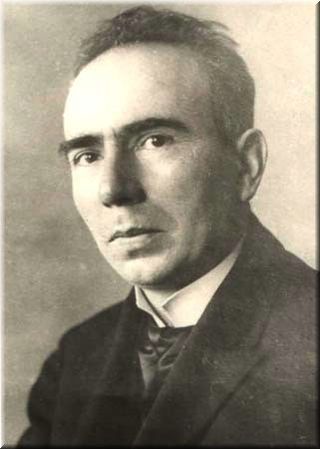
Vasile Pârvan was a Romanian historian and archaeologist.
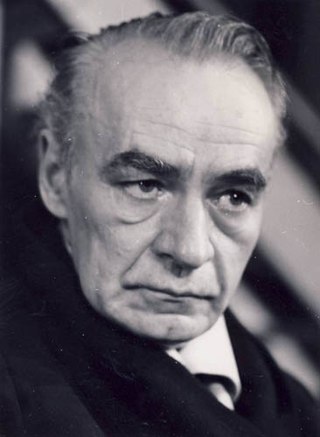
Emil Botta was a Romanian actor, poet and prose writer, the younger brother of poet-essayist Dan Botta. Though born in Western Moldavia, the two boys were raised by their Corsican mother in Muscel County; as a teenager, Emil rebelled against his upbringing and ran away to Bucharest. Upon arriving there, he embraced a bohemian lifestyle that clashed with Dan's academic success; he took small jobs, had samples of his poetry and film criticism published, and, upon graduating from the Conservatory for Dramatic Arts, began a short career in boulevard comedies. As an opinion leader in the early 1930s, he rallied with the avant-garde's struggle against the "old folks", forming an anti-establishment club called "Ship of Failures". His career as an actor was finally launched in 1938, when he drew notice for his performance as Young Werther in production at the National Theater Bucharest (TNB). He found permanent employment on that troupe, developing an acting style that critics viewed as unique and fascinating, if "mannerist".
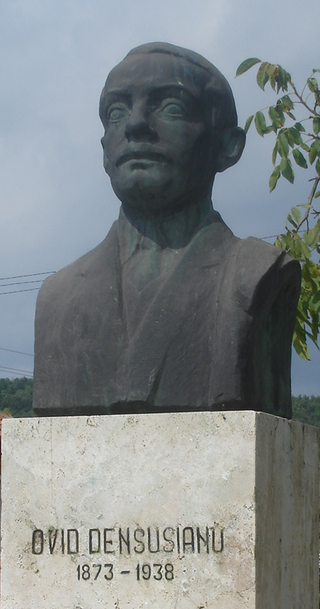
Ovid Densusianu was a Romanian poet, philologist, linguist, folklorist, literary historian and critic, chief of a poetry school, university professor and journalist. He is known for introducing new trends of European modernism into Romanian literature.

Mircea Aurel Vulcănescu was a Romanian philosopher, economist, ethics teacher, sociologist, and politician. Undersecretary at the Ministry of Finance from 1941 to 1944 in the Nazi-aligned government of Ion Antonescu, he was arrested in 1946 and convicted as a war criminal.
Theodor Cazaban was a Romanian anti-communist writer.
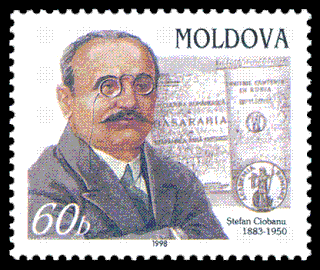
Ștefan Ciobanu was a Moldovan historian and academician, author of some important works about ancient Romanian literature, Romanian culture in Basarabia under Russian occupation, Bessarabian demography, fervent advocate of the introduction of the Romanian language in the schools of Bessarabia, vice-president of the Romanian Academy between 1944 and 1948. He served as Minister of Education (1917–1918) of the short-lived Moldavian Democratic Republic.

Petre P. Panaitescu was a Romanian literary historian. A native of Iași, he spent most of his adult life in the national capital Bucharest, where he rose to become a professor at its main university. As such, he challenged various aspects of the dominant nationalist historiography. However, he also joined the ultra-nationalist Iron Guard, and headed the university during the movement's brief time in power. After the Guard was violently suppressed at the beginning of 1941, he lost his professorial position. When a communist-dominated government entered office in early 1945, he was arrested and imprisoned. Panaitescu was freed by the end of the year, the new authorities finding useful his theories of Slavic influence on Romania's national trajectory. He worked as a researcher in the latter part of his career, retiring in 1965, two years before his death.
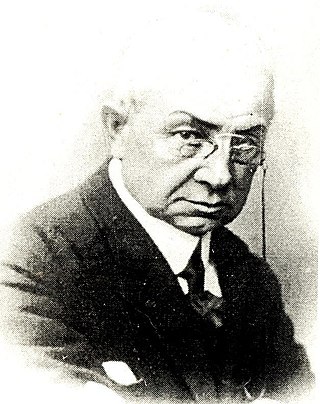
Theodor Dimitrie Speranția was a Romanian playwright, humorist, folklorist and journalist.
Eugeniu Sperantia was a Romanian poet, aesthetician, essayist, sociologist and philosopher.

Emil Dorian was a Romanian poet and prose writer, as well as a physician.

Alexandru Rosetti was a Romanian linguist, editor, and memoirist.
Neagu Rădulescu was a Romanian prose writer and caricaturist.
Tache Papahagi was an Aromanian folklorist and linguist.

Dumitru Popovici was a Romanian literary historian.
Charles Drouhet was a Romanian literary historian.
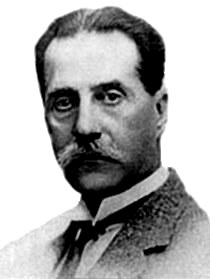
Gheorghe Balș was a Romanian engineer, architect and art historian.

Barbu Nemțeanu was a Romanian poet, humorist and translator, active on the modernist wing of the Romanian Symbolist movement. Of Jewish Romanian background, he lived much of his life in the port city of Galați, which provided him with poetic inspiration, but whose provincial life sparked in him intellectual revolt. Orphaned and leaving school at an early age, then diagnosed with tuberculosis, he found meager employment as a clerk, but, throughout, maintained confidence in his poetic genius. Nemțeanu's Symbolism blended with socialism, but also with a lasting admiration for his adoptive Romanian culture, allowing him to publish pseudonymous work in traditionalist-antisemitic reviews such as Neamul Românesc. He was also one of the Symbolists who frequented the Convorbiri Critice circle, becoming personal friends with its leader, Mihail Dragomirescu.

Alexandru Piru was a Romanian literary critic and historian.
Constantin Fântâneru was a Romanian poet, prose writer and literary critic.














